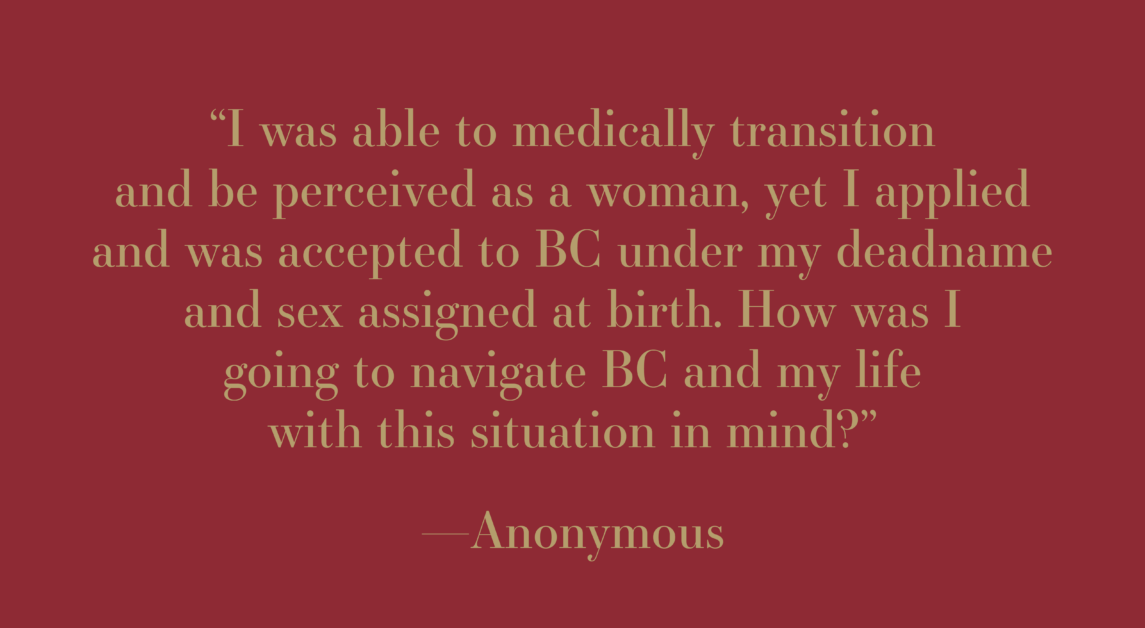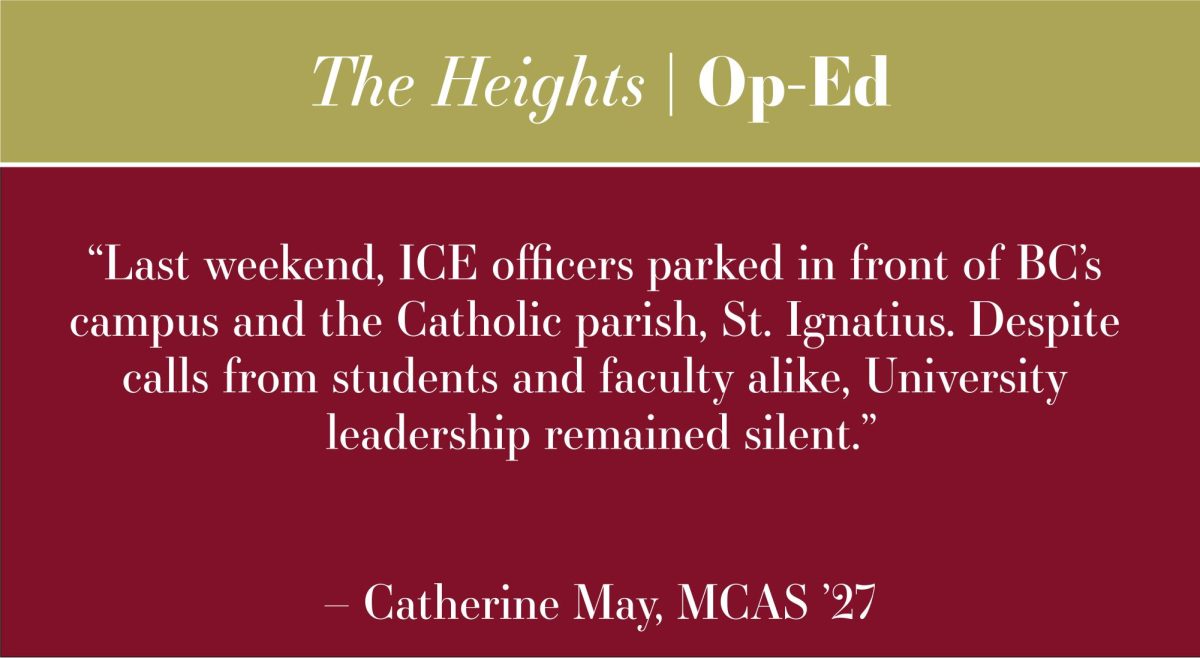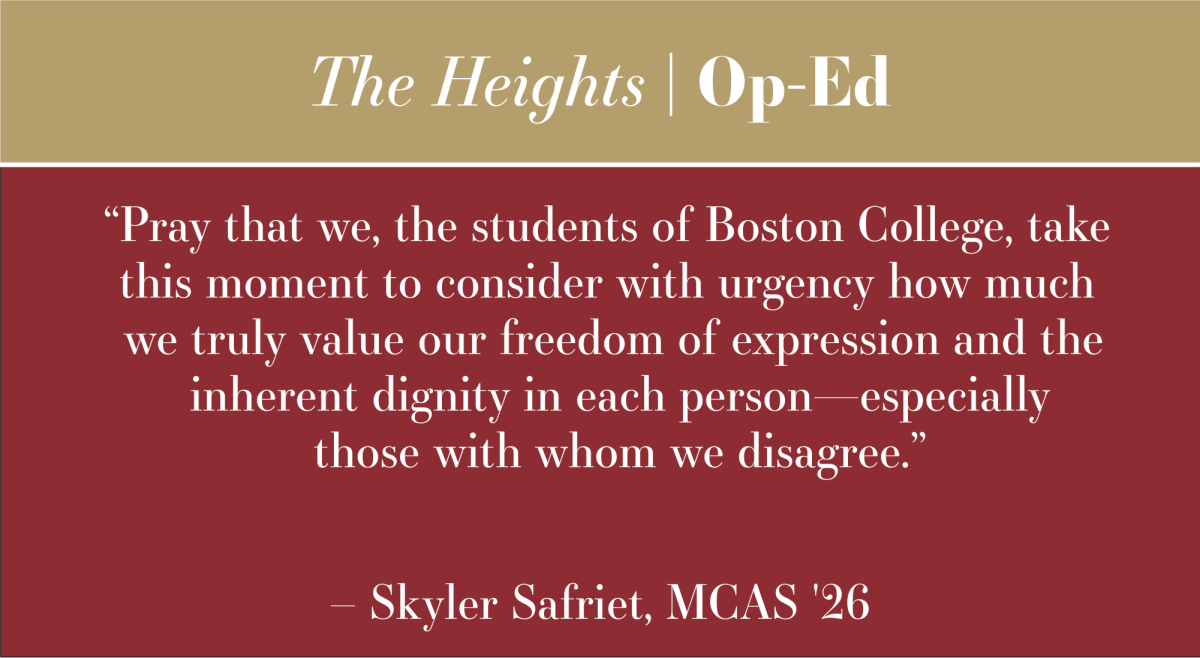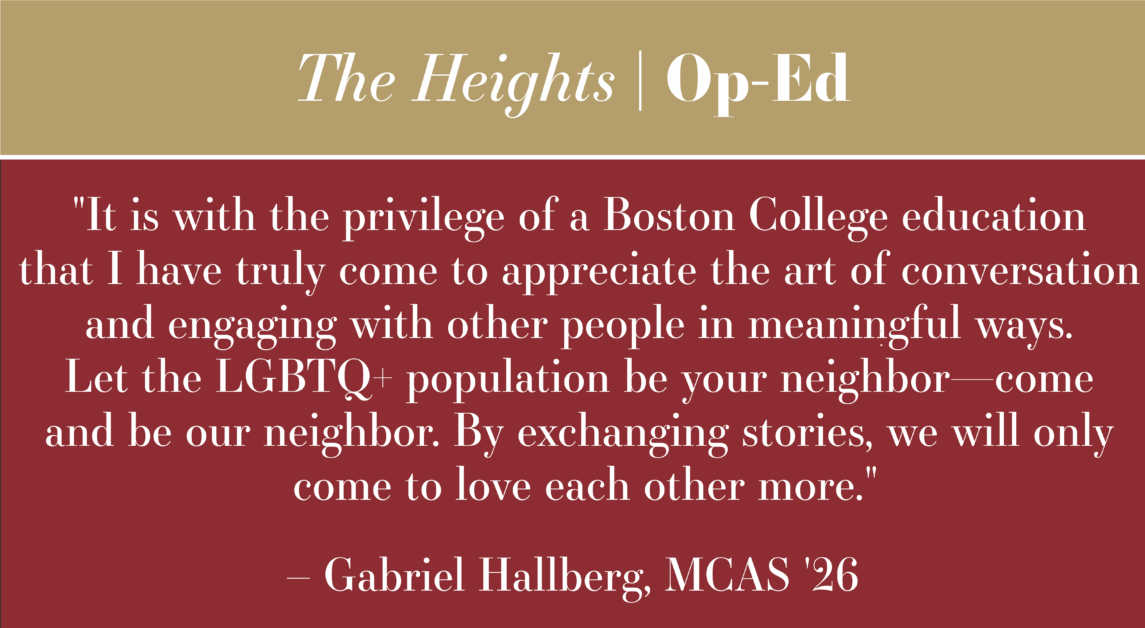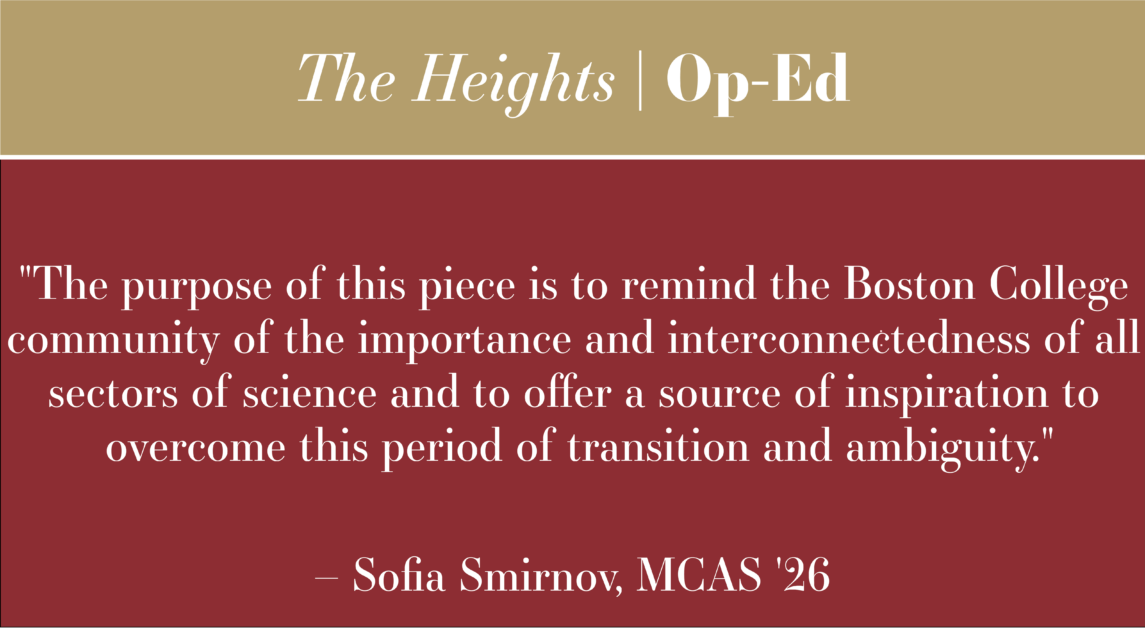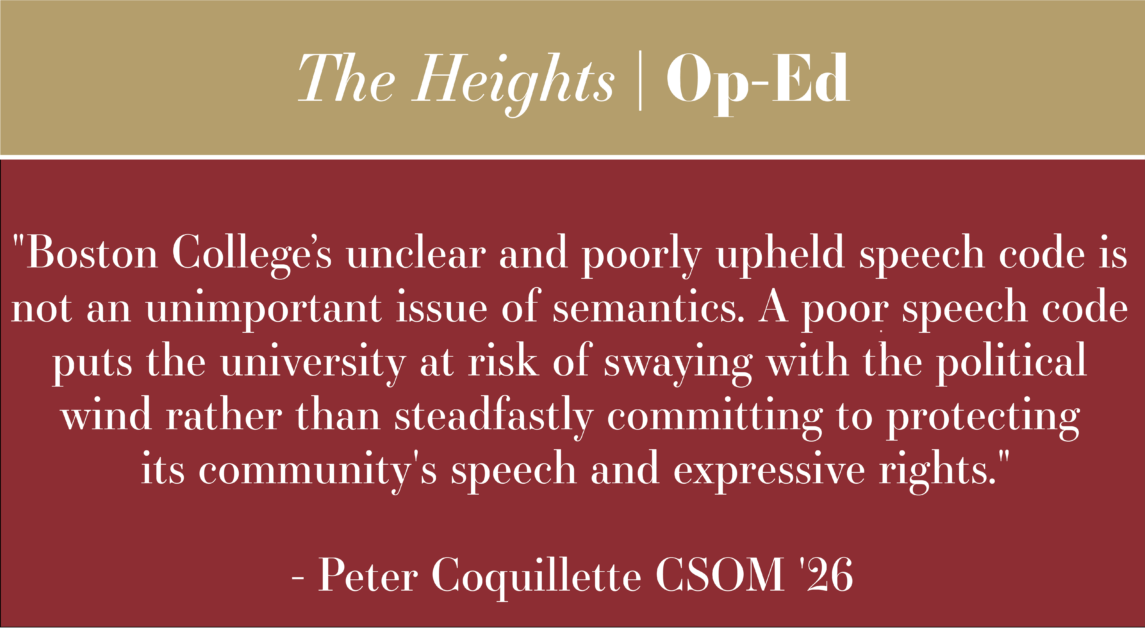I came out as transgender during the COVID-19 pandemic, and I was able to start medically transitioning (through hormone replacement therapy) just a few months before college. I was nervous about college like any other freshman. What should I get for my room? What clothes should I bring? How am I going to navigate BC?
But this is where other freshmen and I differ in terms of nervousness. I was able to medically transition and be perceived as a woman, yet I applied and was accepted to BC under my deadname and sex assigned at birth. How was I going to navigate BC and my life with this situation in mind? My first plan was a compromise—present femininely but hide my gender identity, allowing myself to be deadnamed and misgendered. That plan quickly failed.
First semester of freshman year I met new people, explored Boston, and attended many campus events. One of my fondest memories was having dinner with my friends at Mac and enjoying our time together. After sharing a few laughs, we said our goodbyes and went our separate ways to our respective dorm buildings. I left with a smile on my face, but as I approached my dorm building my smile disappeared and was replaced with fear. I would go back to my single … that was on an all-male floor. I was so paranoid that I would rush in and out of my dorm: What would my hallmates think of me? Did they clock me? It was hard enjoying freshman year because of this.
What made it worse was bathrooms. How the hell was I supposed to use a male communal bathroom? I would wake up at 4:30 a.m., gather my things, and peer through the peephole to see if anyone was up. I then bolted to the bathroom. I would take the quickest showers ever. I did this for a few weeks, but I was able to go home on weekends as I live about an hour away from BC. Going home on weekends gave me a break from 4:30 a.m. showers, but because I was home I would miss out on going to a party or exploring the city with friends. Each weekend at home, I started to get more and more lonely. I also realized how much my situation and my identity hindered me from having fun and living my life. Being deadnamed or misgendered didn’t stress me out as much as brushing my teeth or putting in my contacts in the communal bathroom did.
One week I finally gave up. I was fortunate to know people that could point me to a solution. I got into contact with Caroline Davis, Boston College’s associate dean of student outreach and support, who is known to help queer students like myself. I remember sitting down with her and pouring all of my problems onto her. We came up with a solution, and because of her, I moved into a different room with my own bathroom a few weeks later.
I gained more confidence in my spring semester: I stopped hiding my gender identity and came out as a transgender woman. I talked to Davis about my plan for housing next year, which was to room with my girl friends. I was optimistic, so I was hoping that something could be worked out. She connected me with the director of housing operations.
I knew to keep my expectations low, and I was right. During my meeting with the director of housing operations, they told me that due to BC’s institutional policies, people of the opposite sex assigned at birth cannot room with each other—bummer. One compromise they offered was rooming in the male suite next to my friends. Obviously, I said no.
I’m a sophomore now, and I’m currently living in my own single. I share a private, single-stall bathroom with my male floor, but I make the best of it. It’s like I’m living in my own apartment! But, my paranoia persists. The stares from my hallmates make me wonder if they know what’s up—that I’m transgender, and that’s the reason why a girl is on the boy’s side of the floor.
I don’t think I’m “visibly trans.” You can’t clock me on campus because I’m like any other girl. My friends and I overanalyze boys’ actions, I party, and I freak out because of upcoming exams. You can sometimes find me in a bathroom at a party complimenting the other girls in there with me. I get called ma’am or miss—my favorite is the chef at Lower working the grill who says, “What can I get for you young lady?” to me. Trying to find the trans girl living on a male floor would be difficult because I make it difficult: I do not want random people clocking me because I don’t want to be treated any differently than a cis person would. I hide my identity for my safety. I know how vile this campus could be. I hear slurs being thrown around like they’re footballs tossed around by white guys on the field in front of Maloney.
Due to recent anti-trans laws and anti-trans rhetoric, I feel obligated to share on behalf of the transgender community a sliver of what I go through on campus and the lack of support BC’s queer community receives from the University.
I’m fortunate enough to know a network of people to connect with and help me with my situation. But unlike the Thea Bowman AHANA and Intercultural Center, a resource center I use, I can’t walk to an LGBTQ+ resource center and get help with my situation. Why? Because it doesn’t exist. I mostly had to figure out this situation by myself and with the help of Davis.
Yes, there are LGBTQ+ resources like the GLBTQ+ Leadership Council or the outdated bulletin board on the second floor of Mac, but I wish there was a space created by BC where I could feel comfortable expressing my gender identity and just existing. I feel like I have to fend for myself when it comes to queer issues here on campus as there isn’t a space created by BC dedicated for me to go.
Queer students at BC are left to their own devices, and even though we are able to turn to Davis and other queer students for our problems, I just wish that we were able to turn to a resource center exclusively for LGBTQ+ students and our concerns. It would put me at ease knowing that if any other trans person has a similar issue with housing, they would be able to turn to a resource center and rely on this institution to help them out, and hopefully not have to go through what I did my freshman year. But, judging from this institution’s poor track record of mishandling bias-related incidents and its constant rejection of a LGBTQ+ center, I don’t think a resource center is coming anytime soon.
BC has made it very clear that it does not want to help its queer students, as it continues to deny the LGBTQ+ resource center and allow students whose gender identity does not match their sex assigned at birth to be assigned floors based on their sex assigned at birth. Still, other queer people and I will continue to exist at BC. The University lacks the compassion to realize that even if it’s set in its own values, it still needs to provide support for BC’s diverse student population.
This is unfortunate—but hey, if I get a boyfriend on campus, I can room with him!

